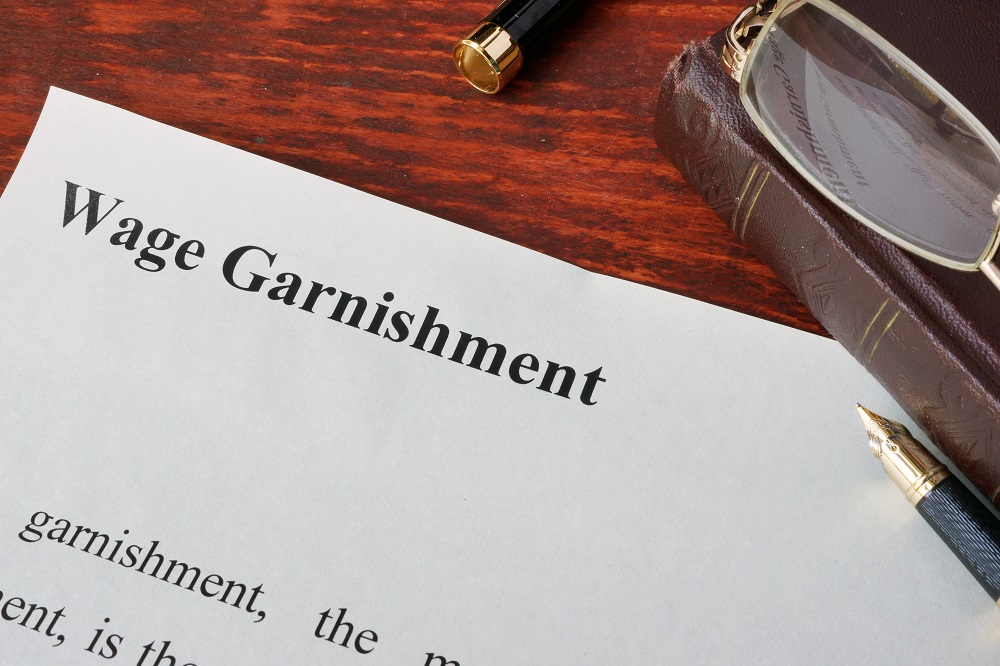Arizona Wage Garnishment Laws
 Most people have heard of wage garnishments but thankfully never have to deal with them. For some, though, wage garnishments seriously hurt their ability to take care of themselves and their families. Today, we want to talk about what wage garnishments are, who can garnish your wages, and what to do about them.
Most people have heard of wage garnishments but thankfully never have to deal with them. For some, though, wage garnishments seriously hurt their ability to take care of themselves and their families. Today, we want to talk about what wage garnishments are, who can garnish your wages, and what to do about them.
If you are considering going through bankruptcy due to wage garnishments or due to overwhelming debt, please seek assistance from a qualified Arizona bankruptcy attorney who can examine your particular case and guide you onto the best path.
What Can Be Garnished?
A wage garnishment happens when a creditor is allowed to take payments directly from your regular paycheck when you owe them money. However, it is not as simple as a creditor calling your employer and taking your money. Some debts that can be garnished include:
- Child support payments
- Spousal maintenance payments
- Back taxes you owe
- Student loan debt
- Money for other unpaid bills, including credit cards or personal loans
Most creditors must file a lawsuit against you and get a money judgment from the court before they can begin to garnish your wages. For credit card loans and medical debt, the creditor is going to have to get a court order before they can begin garnishments.
These creditors cannot garnish more than:
- 25% of your disposable income or
- The amount by which your weekly disposable income exceeds 30 times the federal minimum wage ($7.25 per hour)
Disposable income is what is left over on your paycheck after your employer makes their required deductions (payroll taxes, Social Security, Medicare).
Some creditors do not have to file a lawsuit and go to trial in order to garnish your wages. The following debts can be garnished by the government automatically:
- Court-ordered child support payments
- Court-ordered spousal maintenance payments
- Back taxes owed to the federal, state, and local governments
- Student loan debt (limited to 15% of disposable income)
Child support wage garnishments can be as high as 50 – 60% of your disposable income. An additional 5% may be garnished is you are over 12 weeks behind in payments.
Please know that Arizona employers are barred from terminating a person’s employment due to wage garnishments for child support payments.
Will Bankruptcy Help?
It depends on what kind of debt is being garnished from your wages as to whether the debt can be discharged in bankruptcy proceedings. Court-ordered child support and alimony payments are not going to be discharged in bankruptcy and neither will student loans.
However, credit card debts, personal loan debts, and medical debts can all usually be discharged or reworked, depending on what type of bankruptcy you qualify for. Chapter 7 and Chapter 13 bankruptcies both have different processes and means tests.
Even if you have a wage garnishment for a debt that is non-dischargeable, filing for bankruptcy may be able to help you get rid your finances under control and prioritized. Many people have both dischargeable and non-dischargeable debts. In those cases, alleviating even part of their overall debt burden will do a long way towards gaining financial stability.
How An Attorney Can Help
If your wages are being garnished due to outstanding debts, you may need to consider filing for bankruptcy. A qualified Arizona bankruptcy attorney can help you begin the process. Your first step will be to undergo a means test to determine whether you are eligible for Chapter 7 or Chapter 13 bankruptcy. The court will analyze your average income for the six months prior to filing and compare this with the median income in Arizona. Your attorney will then help you gather paperwork, contact creditors, and work through the court processes throughout the bankruptcy proceedings.
Click here for a glossary of bankruptcy terms.

